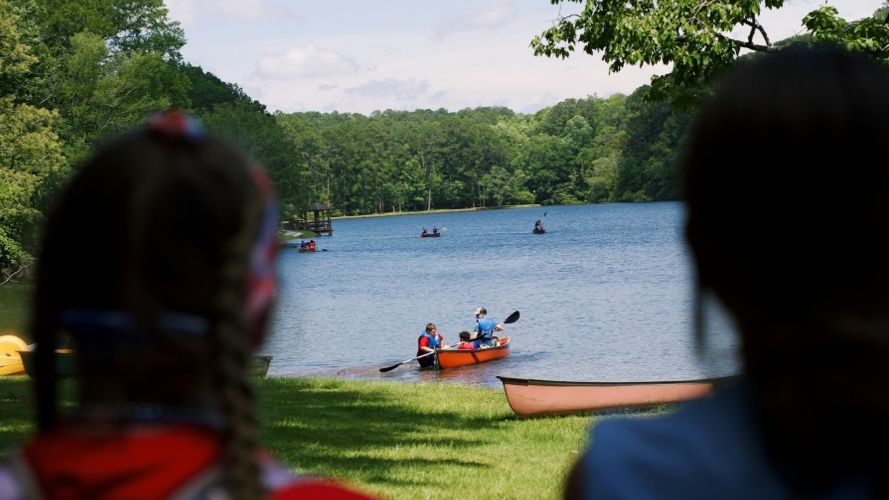How to evaluate the quality of a summer camp program

Introduction
Choosing the right summer camp for your child is a big decision - and we understand this can feel overwhelming. With so many options, how do you know which camps offer truly enriching and safe experiences? You’re not just looking for fun; you want a program that’s well-run, nurturing, and high quality.
In this guide, we’ll walk you through exactly how to evaluate the quality of a summer camp program. Whether you’re new to camp or comparing favorites, we’ve broken down the key signs, questions, and tips to make your decision easier.
Key takeaways
- Look for camps with ACA accreditation or local regulatory oversight.
- Quality camps have trained, background-checked camp counselors and low staff-to-camper ratios.
- Check for strong parent communication policies and camper support plans.
- Seek programs that offer age-appropriate activities and clear safety protocols.
- Use a camp checklist to confidently compare options side by side.
Table of contents
Why camp quality matters
A high-quality summer camp isn’t just a place to keep kids busy - it’s an opportunity to build confidence, make friends, and try new things in a safe, supportive environment.
For many kids, camp is a first step toward independence. When a program is thoughtfully designed, it can also improve emotional growth, teamwork, and resilience. That’s why evaluating quality isn’t just about amenities - it’s about trust.
Well-run camps give parents peace of mind and kids unforgettable experiences. And that starts with knowing what to look for.
Signs of a high-quality camp
ACA Accreditation
One of the clearest signs of quality is ACA accreditation, which means the camp meets over 300 nationally recognized standards in areas like safety, staffing, and programming. Camps don’t have to be accredited - but those that are show a clear commitment to quality.
Qualified, caring staff
Great camps invest in great staff. Look for:
- Thorough staff training before camp starts
- Background checks for all counselors
- Low staff-to-camper ratios (typically 1:6 or better for younger kids)
- Returning staff or referrals from previous years
- Adults on site with first-aid and emergency certifications
Thoughtful, balanced programming
A good camp offers more than just entertainment. Ask about:
- A mix of structured and free-choice activities
- Age-appropriate programming for different camper levels
- Emphasis on inclusion and teamwork
- Opportunities for kids to try new things safely
- Time for rest and reflection (especially at overnight camps)
Clear safety and health procedures
Camps should be able to clearly explain:
- Emergency procedures and medical protocols
- Food allergy accommodations
- Medication administration
- Physical safety checks for activity areas
- Homesickness support strategies
Parent communication
Reliable camps keep you in the loop. Look for:
- Pre-camp orientation or info packets
- Staff available to answer questions before and during camp
- Updates or photos while camp is in session
- Policies for how you’ll be notified in case of illness or injury
Checklist:
How to evaluate a camp
- Is the camp ACA-accredited or licensed by your state?
- Do counselors undergo background checks and pre-camp training?
- What’s the staff-to-camper ratio?
- Are there clear procedures for health, safety, and emergencies?
- What types of activities are offered? Are they age-appropriate?
- How does the camp handle homesickness or behavioral issues?
- How do they communicate with parents during the session?
- Are meals provided? Are dietary needs accommodated?
- Can they provide references from other parents?
- What does a typical daily schedule look like?
Advice for first-time camp parents
- Trust your gut If something feels off - even if you can’t pinpoint why - it’s okay to keep looking. You know your child best, and your confidence in a program matters.
- Ask "what if" questions It’s completely normal to worry! Ask the camp how they handle things like:
- Homesickness
- Illness or injury
- Lost items
- Friend drama or bullying
- A confident, thoughtful response is a great sign of preparedness.
- Get your child involved Kids who help pick their camp are more likely to feel excited and ready. Let them browse photos, explore activities, or attend a tour with you. a
FAQ
- What is ACA accreditation and why does it matter? ACA accreditation means the camp meets hundreds of safety and quality standards. It’s a strong signal of a well-run, child-focused program.
- How do I know if my child is ready for overnight camp? Look for signs like confidence sleeping away from home, interest in independence, or previous success at day camps. Read our full overnight camp readiness guide.
- What should I pack for camp? Most camps provide a packing list, but essentials usually include comfy clothes, closed-toe shoes, toiletries, sunscreen, and a water bottle. See our overnight camp checklist.
- What if my child gets homesick? It’s normal - and experienced camps have strategies in place. Most kids adjust quickly with the right support. Talk to the camp about their homesickness policies.
- Can I visit the camp before enrolling? Yes! Many offer open houses, tours, or virtual info nights. Visiting in person is a great way to get a feel for the environment.
Conclusion
Choosing a camp is a big milestone - and it’s okay to take your time. By focusing on clear signs of quality and asking the right questions, you’re setting your child up for an unforgettable, safe, and enriching experience.



